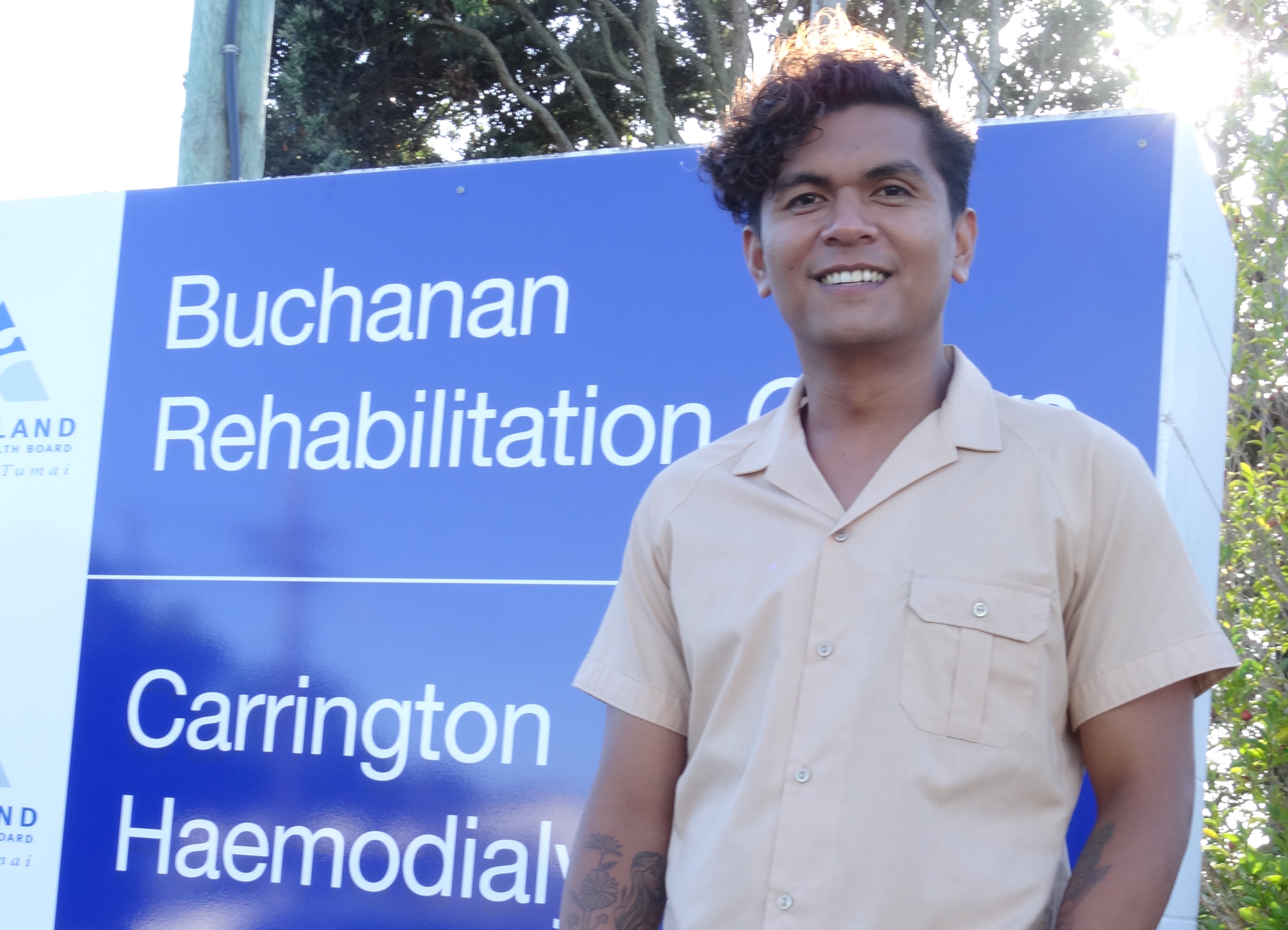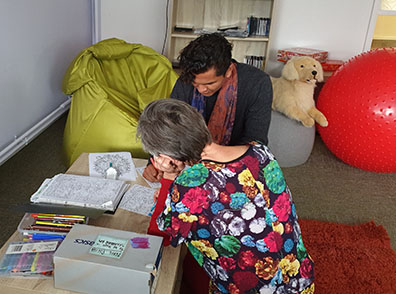Why would you want to work in a career ... that outsiders don't understand?

If you’re someone who wants to understand other human beings then occupational therapy is a great profession, explains mental health occupational therapist Roberto Jatulan.
“As an OT you’re often asking yourself: ‘What in their social life brought this problem out? What is happening personally for that individual? What is it about their environment that is contributing to what they’re going through right now? We’re not just looking at signs and symptoms and giving medication. It is not like that at all,” says Roberto.
One of Roberto’s first clients was a young man who’d been in the social welfare system since he was a kid.
"He ended up with bad cognitive impairment after hanging out with the wrong crowd and getting hit by a car. He was a lovely soul with a sad story. When he came to the unit, he couldn’t cook and his self care and personal care was very bad. But after spending time in the unit he became a positive story because he is now out in the community with a new set of friends and studying at a polytechnic.”
Experiences like these are why Roberto loves his job.
So what is occupational therapy?
In occupational therapy, the word ‘occupation’ simply means doing something - it is not about careers or jobs. So mental health occupational therapists look for meaningful activities that add value to everyday life and help clients regain a sense of control.
These activities are often things most of us take for granted - making a cup of tea, having a shower, cooking food, going out in public. For example, someone may not have showered for weeks because they are finding the task insurmountable, so Roberto’s will break that task down into parts.
“On Monday the person might just clean their face, on Tuesday their face and hair and so we build up their ability to have a full shower by the end of the week. Helping people start to physically care for themselves again really helps their self confidence and plays a huge part in getting better,” he says.
He adds it's not only the stigma around mental health that impacts on their self confidence - they’re also struggling with how much they've lost the ability to do things that used to be really easy.
"When they see other people doing these things they can think, ‘How come it is so easy for them and so difficult for me?’,” explains Roberto.
Rhythm of life
Roberto likes to think of occupational therapy as a way to help people regain their life rhythm.
“When we experience mental illness we get thrown off our rhythm. As a musician and an OT I like to think my role is to help people regain that rhythm,” he declares.
 He has written, played and sang music most of his life, getting involved in bands from an early age - but as a young adult he decided music couldn’t financially sustain him. Coming from a family of health professionals, including his mum who is a nurse, he explored health career options where he could also harness his creative skills. The potential to use music as therapy made occupational therapy very attractive.
He has written, played and sang music most of his life, getting involved in bands from an early age - but as a young adult he decided music couldn’t financially sustain him. Coming from a family of health professionals, including his mum who is a nurse, he explored health career options where he could also harness his creative skills. The potential to use music as therapy made occupational therapy very attractive.
“Music can help clients regain coordination through dancing, singing, or simply listening to music – and it also brings joy, helps people improve their social skills and just adds value to their daily lives,” says Roberto.
Day to day
Currently Roberto has 12 people on his caseload. He also runs occupation-focused groups to equip clients with skills to live independently in the community. Most people stay at the centre 6 to 18 months and he’d see three to five of his clients on a daily basis.
He works in a multi disciplinary team with other mental health professionals, to whom he must be able to articulate about what he does, including providing clear clinical reasoning for his professional decisions.
“We’re not being a Doctor Quack Quack here - we don’t make up these activities on the spot. It is something we do in collaboration and consultation with each person and we have to justify every activity, relating it to signs and symptoms.," says Roberto.
He works particularly closely with social workers, especially when discharging clients.
"With discharging, my role is to find out about available resources and look at how my client is going to live in that particular setting. The social worker helps with that aspect too, but also with financial help and things like that.”
Self care and stress
As a health professional, Roberto says it is important to acknowledge when things at work or outside of work become stressful.
“People often think it is a sign of weakness to seek support but actually it is more professional and courageous to share and seek advice. To work in mental health you need to know how to take care of your own mental health.”
As an occupational therapist with the DHB he says he’s well supported with guidance and help from two supervisors, one external and one on site. Roberto says it is also quite common to have debriefs with your colleagues when you’re struggling with a certain issue.
He adds a lot of people who work in mental health have been through something in their own lives which enables them to be empathetic with their clients.
“It is difficult to say I understand what you’re going through if you haven’t gone through dark times in your own life or to understand the pain of someone if you haven’t experienced pain yourself.”
Tips to OT students
 Keep up with your sciences
Keep up with your sciences
There is lot of science involved in occupational therapy, says Roberto.
“You have to be prepared for that.
Want to help others
"Yes, the pay is pretty good," says Roberto, "but to really enjoy occupational therapy you have to want to help other people and add more meaning into your life.”
Develop strong communication skills
You really need good communication skills for occupational therapy, says Roberto, because you’re dealing with many different types of people.
“It is something I had to work at during my university study. We learned how to build rapport with a client, how to deal with stressful situations, that sort of thing.”
Roberto's interview highlights
Mental Health image by Natasha Spencer on Unsplash
CVs/Cover letters
- 7 Tips on creating a great CV
- Personal Statement? Career Objective? What?
- Why bother with LinkedIn?
- Why bother to write a cover letter?
Job search skills
Career advice
- Bringing passion into the mix
- Don't let rejection end your dream
- Employability Skills - how to figure them out!